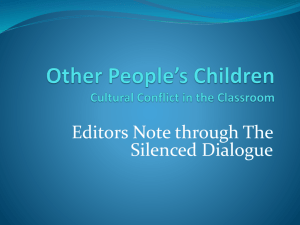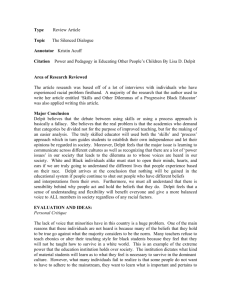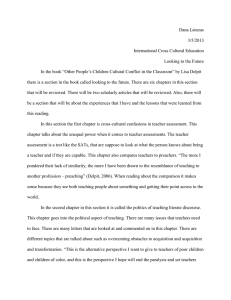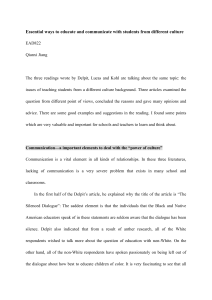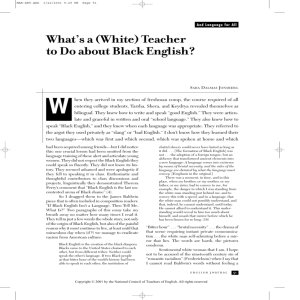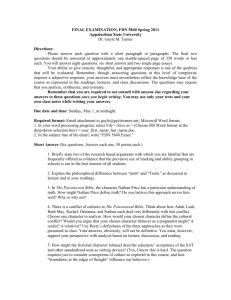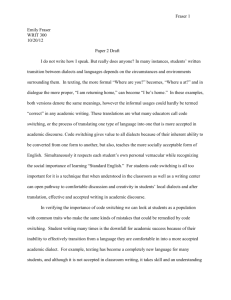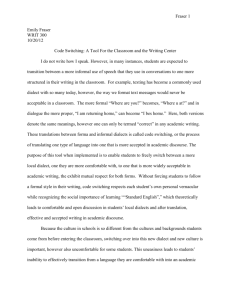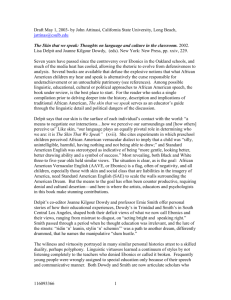Review Essay
advertisement
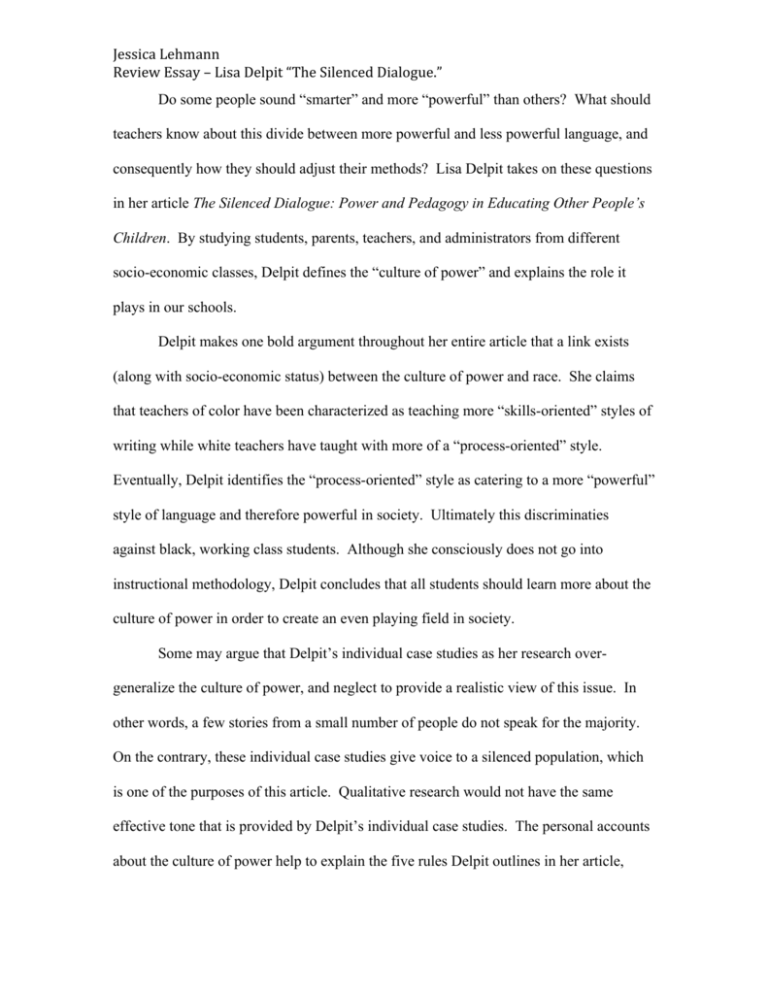
Jessica Lehmann Review Essay – Lisa Delpit “The Silenced Dialogue.” Do some people sound “smarter” and more “powerful” than others? What should teachers know about this divide between more powerful and less powerful language, and consequently how they should adjust their methods? Lisa Delpit takes on these questions in her article The Silenced Dialogue: Power and Pedagogy in Educating Other People’s Children. By studying students, parents, teachers, and administrators from different socio-economic classes, Delpit defines the “culture of power” and explains the role it plays in our schools. Delpit makes one bold argument throughout her entire article that a link exists (along with socio-economic status) between the culture of power and race. She claims that teachers of color have been characterized as teaching more “skills-oriented” styles of writing while white teachers have taught with more of a “process-oriented” style. Eventually, Delpit identifies the “process-oriented” style as catering to a more “powerful” style of language and therefore powerful in society. Ultimately this discriminaties against black, working class students. Although she consciously does not go into instructional methodology, Delpit concludes that all students should learn more about the culture of power in order to create an even playing field in society. Some may argue that Delpit’s individual case studies as her research overgeneralize the culture of power, and neglect to provide a realistic view of this issue. In other words, a few stories from a small number of people do not speak for the majority. On the contrary, these individual case studies give voice to a silenced population, which is one of the purposes of this article. Qualitative research would not have the same effective tone that is provided by Delpit’s individual case studies. The personal accounts about the culture of power help to explain the five rules Delpit outlines in her article, Jessica Lehmann Review Essay – Lisa Delpit “The Silenced Dialogue.” particularly a portion of the fifth rule: “Those with less power are often most aware of its existence” (282). By showing the emotions expressed from the case studies, especially anger and frustration, the reader can visualize and understand the workings of “culture of power” and how it is creating disputes about educational methodology in our schools. As mentioned earlier, Delpit concludes that educators need to explain the culture of power to their students, including the explicit and implicit rules, in order for students to have a shot at success in society. She also explains how non-white students from working-class backgrounds pick up speech habits from kin members. One problem about Delpit’s educational suggestion arises under the assumption that there is a correct, or even better, style of speech. Teaching a student to abandon their natural style of speech with the intent of learning the “correct” way to speak could be interfering with an individual’s culture and heritage. Delpit assumes that ALL children want to go to college and have a successful position in life. What about those students who don’t aspire to higher education, and a career that requires one to speak by the rules of “the culture of power.” Teaching students to speak differently from friends and family might be damaging to that students perception of their culture and identity, especially if we label this different speech style as “better” or “more powerful.” I personally do not understand why race was such an important connection to the culture of power. Delpit, in a round about way, seems to be saying that black people and white people talk differently, and the way that white people talk is more socially acceptable in society. If an individual is going to judge a person for sounding like they are “talking black,” I believe that they will probably judge this person based on the color of their skin before that person even opens his or her mouth. Delpit attempted to focus on Jessica Lehmann Review Essay – Lisa Delpit “The Silenced Dialogue.” socio-economic class, but she also clearly indicated that race was a factor in the “culture of power.” I wonder how this article would read if Delpit stuck only to socio-economic status and left out race completely.
